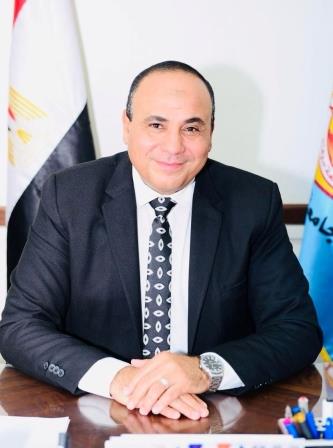رسالة ماجستير
الدور التربوي للمدارس الثانوية غير الحكومية في تعزيز الهوية الثقافية لدى طلابها في ضوء متغيرات العصر الرقمي
رسالة مقدمة للحصول على درجة الماجستير في التربية
تخصص ( أصول التربية )
إعداد
إيمان فهمى محمد أحمد
معلمة فصل بمدارس التعليم المجتمعي- إدارة جهينة التعليمية
إشــــراف
|
الأستاذ الدكتور محمود السيد عباس أستاذ أصول التربية والعميد السابق كلية التربية- جامعة سوهاج |
الأستاذ الدكتور فيفي أحمد توفيق أستاذ ورئيس قسم أصول التربية كلية التربية جامعة سوهاج |
1443هـ ـ 2022م
مستخلص الدراسة:
استهدفت الدراسة إبراز متغيرات العصر الرقمي وانعكاساتها على مقومات الهوية الثقافية لدى الشباب عامةً وطلاب المدارس الثانوية غير الحكومية خاصة. وتسليط الضوء على الدور التربوي للمدارس الثانوية غير الحكومية في تعزيز الهوية الثقافية لدى طلابها. واستخدمت الباحثة المنهج الوصفي؛ لرسم صورة لواقع الهوية الثقافية لدى طلاب المدارس الثانوية غير الحكومية، ورسم صورة لواقع الدور التربوي للمدارس الثانوية غير الحكومية في تعزيز الهوية الثقافية لدى طلابها. وتمثل مجتمع الدراسة الميدانية في تسع عشرة(19) مدرسة ثانوية غير حكومية بست إدارات من محافظة سوهاج، وهي(أخميم – سوهاج – المنشاة - دار السلام – البلينا - ساقلته)، وطبقت الباحثة أداة دراستها الميدانية(الاستبانة) على عدد اثنى عشرة(12) مدرسة من هذه المدارس، وبلغ عدد مجتمع الدراسة الأصل(6411) طالب وطالبة طبقًا لإحصاء عام (2021-2022م)؛ تم تطبيق الاستبانة على عدد(450) طالب وطالبة من المجتمع الأصل بنسبة(10%) تقريبا.
وجاءت أبرز النتائج التي توصلت إليها الدراسة كما يلي:
- متغيرات العصر الرقمي تنعكس على مقومات الهوية الثقافية لدى عينة الدراسة من طلاب المدارس الثانوية غير الحكومية بمحافظة سوهاج بدرجة متوسطة. و تأتي اللغة العربية في المرتبة الأولى تأثرًا بمتغيرات العصر الرقمي. تليها في المرتبة الثانية "القيم"، ثم "الانتماء"، ويأتي "الدين" في المرتبة الرابعة تأثرًا بمتغيرات العصر الرقمي.
- المدارس الثانوية غير الحكومية بمحافظة سوهاج لها دور جيد في تعزيز الهوية الثقافية لدى طلابها. وتحظى اللغة العربية بالمرتبة الأولى تعزيزًا واهتمامًا في الدور التربوي للمدارس الثانوية غير الحكومية بمحافظة سوهاج، يليها الدين في المرتبة الثانية، ثم القيم في المرحلة الثالثة. وأخيرًا الانتماء في المرحلة الرابعة.
- متغيرات العصر الرقمي تنعكس على الطلاب الذكور من عينة الدراسة بدرجة أكبر من الطالبات الإناث.
- وجود فروق دالة إحصائيًا بين أنواع المدارس الثلاث(خاص عربي، وخاص لغات منهج مصري، وخاص لغات منهج دولي) فيما يتعلق بدورها التربوي في تعزيز الهوية الثقافية لدى طلابها، وجاءت الفروق لصالح مدارس الخاص عربي في المركز الأول، ومدارس الخاص لغات منهج مصري في المركز الثاني، ومدارس الخاص لغات منهج دولي في المركز الثالث.
وقدمت الدراسة تصورًا مقترحًا لتفعيل الدور التربوي للمدارس الثانوية غير الحكومية في تعزيز الهوية الثقافية لدى طلابها في ضوء متغيرات العصر الرقمي. وتضمّن التصور محورين؛ الأول: التكيف مع متغيرات العصر الرقمي. والثاني: تعزيز الهوية الثقافية لدى الطلاب.
الكلمات المفتاحية: العصر الرقمي- الهوية الثقافية- المدارس الثانوية غير الحكومية.
Study abstract
The study aimed to highlight the variables of the digital age and their repercussions on the elements of cultural identity among young people in general and students of non-governmental secondary schools in particular. And highlighting the educational role of non-governmental secondary schools in promoting the cultural identity of their students. The researcher used the descriptive research; To describe the reality of cultural identity among students of non-governmental secondary schools, and to draw a picture of the reality of the educational role of non-governmental secondary schools in promoting the cultural identity of their students. The field study community was represented in nineteen (19) non-governmental secondary schools in six departments from Sohag Governorate, which are (Akhmim - Sohag - Al-Manshah - Dar es Salaam - Al-Balina - Saqaltah), and the researcher applied her field study tool (the questionnaire) to twelve (12) One of these schools, and the number of the original study population was (6,411) male and female students, according to the census of the year (2021-2022 AD); The questionnaire was applied to a number of (450) male and female students from the original community, at a rate of approximately (10%).
The main Results of the study were as follows:
- Variables of the digital age are reflected on the elements of cultural identity among the study sample of non-governmental secondary school students in Sohag governorate, to a medium degree. The Arabic language comes first, affected by the changes of the digital age. Followed by "values", then "belonging", and "religion" in the fourth place, affected by the changes of the digital age.
- Non-governmental secondary schools in Sohag have a good role in promoting the cultural identity of their students. The Arabic language is ranked first in terms of promotion and attention in the educational role of non-governmental secondary schools in Sohag Governorate, followed by religion in the second place, and then values in the third stage. And finally, affiliation in the fourth stage.
- The variables of the digital age are reflected in the male students of the study sample to a greater degree than the female students.
- There are statistically significant differences between the three types of schools (private Arabic, special languages of an Egyptian curriculum, and special languages of an international curriculum) with regard to their educational role in promoting cultural identity among their students. Second place, and private schools for international curricula languages in third place.
The study presented a proposed vision for activating the educational role of non-governmental secondary schools in enhancing the cultural identity of their students in light of the variables of the digital age. The perception included two axes; The first: adapting to the changes of the digital age. The second: strengthening the cultural identity of students.
Keywords: the digital age - cultural identity - non-governmental secondary schools

